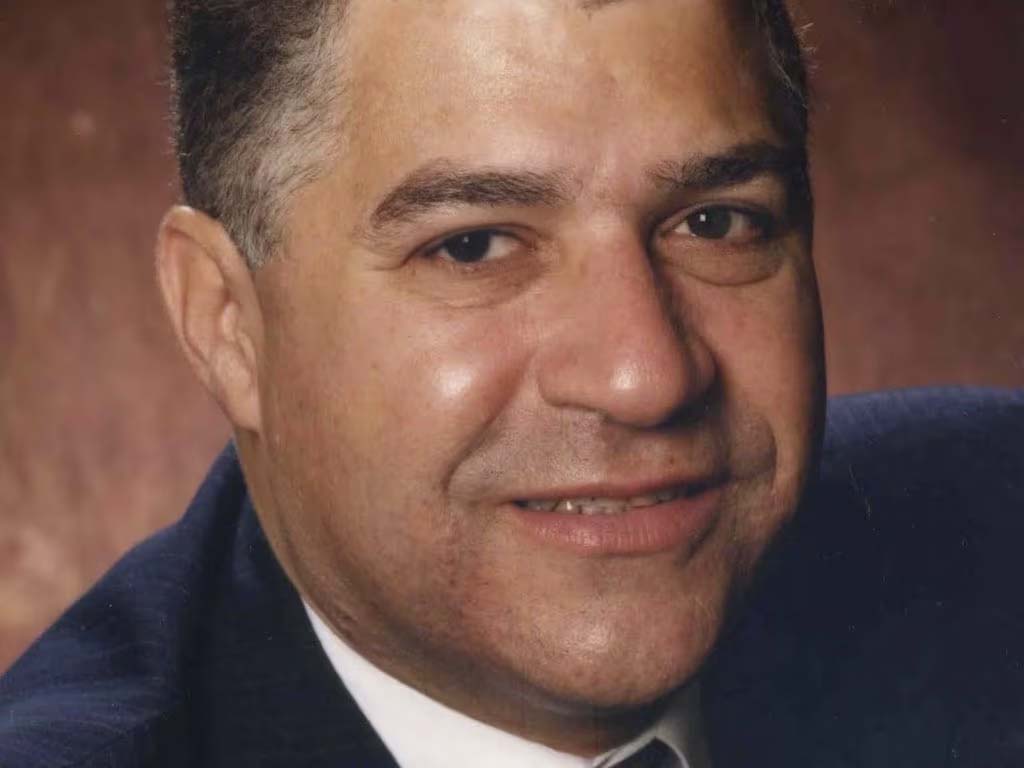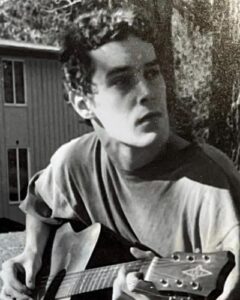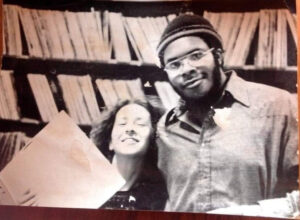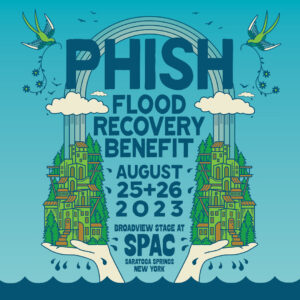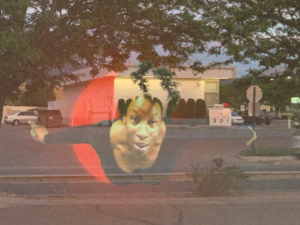 Drew Dillhunt is an alum of the Goddard College MFAW Program in Port Townsend, Washington. His poetry collection, Leaf is All, was selected as the winner of the 2014 Dorothy Brunsman Poetry Prize, and will be published by Bear Star Press. Leaf is All is the further revised and polished version of his Goddard thesis.
Drew Dillhunt is an alum of the Goddard College MFAW Program in Port Townsend, Washington. His poetry collection, Leaf is All, was selected as the winner of the 2014 Dorothy Brunsman Poetry Prize, and will be published by Bear Star Press. Leaf is All is the further revised and polished version of his Goddard thesis.
The Writer caught him on a flight to Washington, D.C.:
1) What was the impetus for writing this book?
The decision to embark on the journey of writing a book of poetry (and the decision to pursue an MFA) can be traced back to a singular poetry workshop I attended with Frank X Walker in 2006 at the University of Minnesota, entitled “In Search of Authentic Voices.”
Some of the earliest seeds of the manuscript were planted during that week—and Frank’s voice continues to mentor me as both a poet and reader to this day.
In Frank’s workshop, he encouraged us to steal from ground he’d already broken in his own poetry by asking us to write persona poems in the voice of people and/or objects from our own family histories.
Frank’s vision, implementation, and nuanced teaching of historical poetry as an essential endeavor, absolutely blew me away. It opened entirely new doors in my poetry. I’d been struggling for some time to write about my family history, but couldn’t quite figure out why this seemed so important important or even quite how to begin.
The seeds of what would become Leaf is All came from his skillful prompting. Frank asked us to bring treasured family objects to the workshop to write through. I carried with me a silver, heart-shaped locket my father bought for my mother on Valentine’s Day, 1976—when I was a one-year old.
The hinge broke on the locket shortly after it was purchased as a result of my opening and closing it one too many times while my mother held me. Even so, the locket remained in my mother’s jewelry box throughout my childhood, and I would frequently get it out to look at the picture of me and my father it contained.
A year or so before the workshop, my mother, in effort to reduce clutter in their house, decided she was ready to let it go. And of course my father, a saver of all things, scooped it out of the trash can, and stashed it in a ziplock bag to give to me during his next visit to Seattle.
One of the poems I wrote during that workshop was a persona poem in the voice of my father buying the locket (I interviewed him for details) and another in the voice of the locket itself.
Locket
I have dangled from your mother’s throat
hinges worn thin by eager hands
in a search to discover what it is I contain
I have graced garbage cans
overflowing, I am out of style and dated
filled with yellowed pictures cut to size
unevenly with fingernail scissors
Secretly resurrected,
I have been sequestered safely
in a zip-lock cave
until today
Open me, gaze into your own eyes
beyond what you remember
what you think you know
I am a window
both broken and repaired
I close, but will not be shut
Both poems were eventually cut from the final version of the book. Still, the process established here was was instrumental in shaping the poems that followed.
“Numerology,” for example, a seven-part historical persona poem, came directly from the practice I established in Frank’s class. The poem conjures (to borrow Frank’s word for the process) the voice of my father as a means to tell the story of the car accident he and my mother had shortly before their wedding day. And then many of the theme’s my father’s voice surfaces in this poem became centers of gravity for other poems that followed.
Coming full circle, my father, CX Dillhunt—who also studied with Frank X Walker—and I had the amazing opportunity to interview Frank about his process as a poet and historical conjurer for the magazine Verse Wisconsin, as part of the Wisconsin Book Festival in 2012.
http://versewisconsin.org/Issue110/prose/walker.html
So that’s where the book began. Many of the other threads in Leaf is All sprang directly from these seeds as well, including the long poem “Herselves,” dedicated to Henrietta Lacks. That poem is very much my most recent effort to embody the spirt Frank’s historical conjuring.
2) How did you find the main theme?
The broader theme of plasticity, which I’d consider the main theme of the book, came to me early in my first semester at Goddard. It was certainly in large part a continued investigation into the plasticity of the self that I’d already encountered writing historical persona poems in the voice of my father.
The first poem of this series (which was later replaced in the book by a new poem of the same title) was written during my very first residency. The poem “Plastic #7” was a response to the relegation that the plastic in Nalgene water bottles had been found to leach harmful chemicals into the water they contained.
At the time, my wife, Kelley, and I regularly used Nalgene bottles for drinking water. She’d filled two bottles with tap water from our house for me to take on my greyhound bus ride to Port Townshend.
Later that week, while writing in my room, I took a sip from one of the bottles. I was immediately struck by the strange co-mingling of disgust (at the potential toxicity of the plastic-flavored water) and sweet nostalgia (for water from the tap in my Seattle home). That co-mingled sensation seemed to perfectly describe our troubled, and yet irresistible, relationship to the material plastic itself.
I know that plastic, and the fossil fuels used to make it, are an enormously destructive force on the ecosystems of which we are all a part. I despise the material plastic for that. And yet, I’m simultaneously drawn to that same material, and filled with an undeniable nostalgia for the many objects from my childhood, and my adulthood, composed of it. The plastic series in Leaf is All are my attempt to capture and reckon with that duality.
A couple of years ago, I began writing another series of poems, entitled Leaf is All, as response to Goethe’s book The Metamorphosis of Plants (and poem by the same title). Somewhere along the way, it became clear that this wasn’t the beginning of a new manuscript, as I’d initially believed, but rather extension of the one I already had.
Like the plastic series, these pomes dealt with plasticity, although in the biological realm rather than the chemical one. It was this series poems that finally solidified the manuscript’s theme (and final structure) and also suggested the final title.
3) What did you do when the going got tough?
When the going got tough, I reached out to other poets. I took classes with poets. I interviewed poets. I wrote reviews of books of poetry. I joined writing groups. I joined reading groups. I volunteered to read submissions for a poetry journal. I worked as an editor.
It was Goddard advisor Aimee Liu, who after hearing me read the plastic poems, suggested the connection between these poems and the movie The Graduate. It seemed so right, and so obvious, I couldn’t believe I hadn’t noticed it earlier.
It was Seattle poet and teacher Kary Wayson whose vision helped me to find my way to integrating the fourteen poems in the “Leaf is All” series into the manuscript. (Actually, to be more precise, it was Kary who assigned me to write more poems for the series so that there would be fourteen in all.) And it was Kary who pointed out that the title of these poems was also the title of my book.
I could go on.
Leaf is All is most certainly a product of poetic community—and much of that community grew directly from relationships established at Goddard. Without that community the book simply wouldn’t exist.
http://www.bearstarpress.com/
http://www.hummingbirdpoetry.org/

